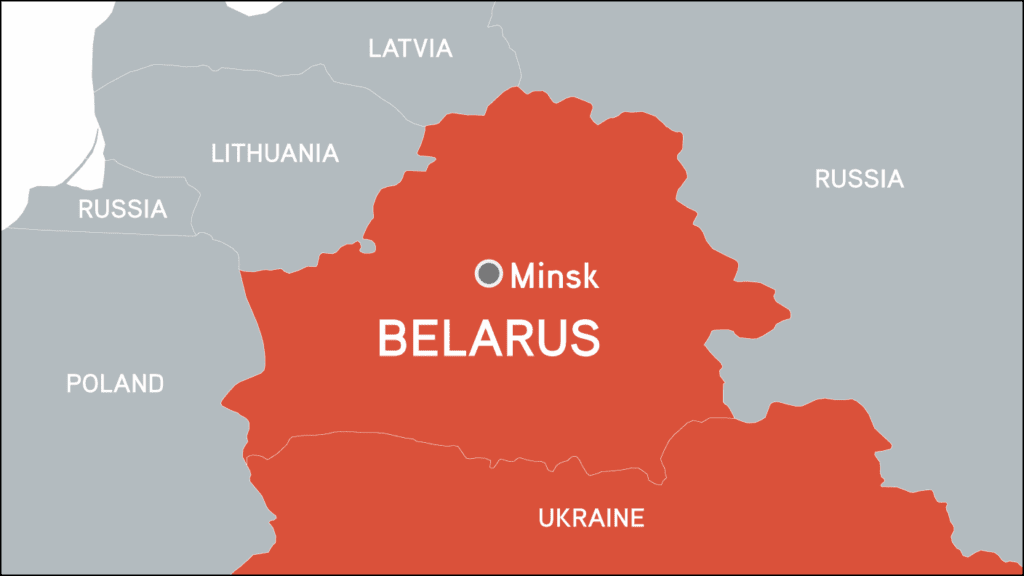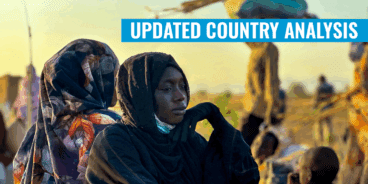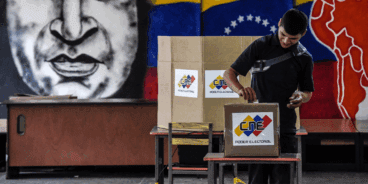Belarus

Authorities in Belarus have perpetrated widespread, systematic and grave human rights violations and persecution against perceived opponents, some of which, amount to crimes against humanity.
BACKGROUND:
Since assuming office in 1994, President Alexander Lukashenko has systematically dismantled democratic institutions and silenced dissent in Belarus. In response to President Lukashenko’s declaration of victory in the 2020 presidential election, widespread protests over alleged electoral fraud erupted across six oblasts. The government responded with a massive and violent crackdown to suppress dissent, including excessive use of force, arbitrary arrests and detentions, sexual and gender-based violence, torture and summary trials. This suppression continues to this day, with demonstrators, political opponents, human rights defenders, journalists, trade unionists, lawyers and ordinary citizens expressing dissent subjected to abuses. The UN Human Rights Council-mandated Group of Independent Experts (GIE) on Belarus determined that there are reasonable grounds to believe that President Lukashenko has established and implemented a policy aimed at suppressing any form of dissent by targeting real or perceived opponents to maintain power and participated in the crimes against humanity of political persecution and imprisonment since May 2020.
Following the 2020 crackdown, Belarusian authorities adopted a set of legislative reforms, introducing new criminal and administrative offences, extending the death penalty, restricting freedom of assembly and association and widely impacting freedom of expression through expanded surveillance. President Lukashenko’s regime has targeted civil society extensively. In July 2021 the president announced a “purge,” during which authorities shut down over 1,000 independent organizations. Independent associations, trade unions and political parties have been systematically dismantled and face persecution.
The government has also intensified its widespread policy of arbitrary arrest and detention, with torture and inhuman or degrading treatment systematically inflicted, particularly against perceived political opponents. Since 2020 at least 8,905 people have faced politically motivated criminal prosecutions, while 7,565 people have received politically motivated sentences, including in absentia.
Authorities have increasingly rejected findings from human rights bodies, obstructed independent monitoring and refused cooperation with international mechanisms. According to the GIE, President Lukashenko exercises complete control over all state powers and has given orders, either directly or through individuals reporting to him, to various state institutions that have committed human rights violations and ongoing crimes against humanity. The main perpetrators of these abuses – primarily state security forces, such as the State Security Committee (KGB), Special Purpose Police Detachment and Interior Ministry troops – operate with complete impunity. In some cases, pro-government militias have engaged in harassment and intimidation of opposition members.
In this climate of fear, the Office of the UN High Commissioner for Human Rights (OHCHR) estimates that up to 300,000 individuals have been forced to flee. Belarusians in exile face continued judicial harassment, trials in absentia, hate speech, as well as targeted intimidation of themselves and their families. These practices have led to de facto statelessness for many.
In response to growing repression, the European Union, United States and United Kingdom have imposed targeted sanctions on Belarusian individuals and entities. The Organization for Security and Co-operation in Europe (OSCE) has invoked its Moscow Mechanism multiple times to appoint rapporteurs to investigate human rights violations, with reports highlighting systemic abuses connected to the 2020 elections and beyond.
In September 2024 Lithuania referred the situation to the International Criminal Court (ICC), requesting an investigation into alleged crimes against humanity, including deportation, persecution and other inhumane acts since 1 May 2020.
RECENT DEVELOPMENTS:
In January 2025 Belarus held presidential elections widely condemned by international observers as neither free nor fair. Conducted in an atmosphere of severe repression and intimidation, the election resulted in President Lukashenko securing a seventh term. Following the election, authorities intensified repression against political opponents, civil society and independent media. Human Rights Watch has documented widespread arbitrary arrests, forced disappearances and torture of detainees.
UN Special Procedures, OHCHR and the UN Committee on the Elimination of Discrimination against Women have repeatedly raised alarm over the inhumane conditions endured by female political prisoners, including punitive measures such as solitary confinement, public humiliation, incitement of violence and sexual violence. In May a group of UN Special Procedures reported ongoing cruel, inhuman and degrading treatment in women’s correctional colonies, particularly affecting women convicted in connection to the 2020 protests.
Despite recent waves of presidential pardons for hundreds of political prisoners, the overall number of unjustly imprisoned individuals remains high. The Viasna Human Rights Centre reports at least 1,255 currently in custody, many facing ill-treatment and incommunicado confinement. According to the UN Special Rapporteur on the situation of human rights in Belarus, some pardons have been accompanied by new violations, including forcing prisoners to record propaganda videos or sign cooperation agreements with the KGB to secure their release. Several released individuals have also been deported and stripped of their passports, leaving them at risk of statelessness.
The UN Special Rapporteur’s latest report documented pervasive politically motivated discrimination and harassment across public and private sectors. The Special Rapporteur found the use of forced labor as punishment for unjustly imprisoned persons. These findings come amid a two-year engagement with the International Labour Organization, which has placed Belarus under heightened scrutiny for violations of trade union rights.
ANALYSIS:
The situation in Belarus reflects a state-driven, institutionalized campaign of repression. Belarusian authorities have implemented policies to incite fear, intimidate and punish those perceived as “disloyal” through a campaign officials have repeatedly described as a “cleansing of society.” Prolonged incommunicado detention may constitute torture or enforced disappearance. The use of Article 411 of the Criminal Code, which allows indefinite extension of prison sentences for “disobedience,” exemplifies the arbitrary and punitive manipulation of law to suppress dissent. Abuse of counterterrorism and so-called anti-extremism laws further enables judicial persecution.
The targeting of women underscores the gendered dimension of repression. Violations against detained women may constitute gender-based persecution, as defined under the Rome Statute, and align with patterns of systemic abuse previously outlined by UN bodies. Vulnerable groups, including ethnic and religious minorities, LGBTQIA+ individuals and persons with disabilities, face additional, underreported risks of discrimination and violence.
Crimes against humanity are enabled by a deliberate policy of state violence, institutional complicity and a complete absence of accountability. Courts, law enforcement agencies and security services operate together to suppress opposition, with repression codified into law. This enables violent repression of dissent through disproportionately heavy sentences and the lack of fair trials. The regime’s criminalization of dissent and dismantling and persecution of civil society actors demonstrate the systematic nature of these violations.
Russia’s strategic alliance with Belarus provides key diplomatic, economic and technical support, emboldening the regime and shielding it from international accountability. This support not only enhances the state’s capacity to commit abuses but also weakens the impact of multilateral pressure and sanctions.
RISK ASSESSMENT:
-
-
- Security forces and judicial institutions weaponized to suppress dissent without accountability amid no domestic, independent oversight or redress mechanism.
- Legal and institutional infrastructure designed to silence perceived opposition, enabling the state to carry out repression under the guise of legality.
- Widespread and systematic persecution through actions that are organized, intentional and directed against identifiable groups.
- Dismantling of civic space and a surveillance state – characterized by censorship, internet shutdowns, disinformation and propaganda – to hide abuses and incite hostility.
- Presence of exclusionary ideology, entrenched authoritarianism, international isolation, collapse of independent institutions and state capacity for mass repression.
-
NECESSARY ACTION:
The Belarusian government must immediately and unconditionally release all political prisoners and guarantee that civil society actors can carry out their work without fear of reprisal. Belarusian authorities must halt politically motivated prosecutions, reform repressive laws and re-engage with international human rights mechanisms.
EU and OSCE member states should strengthen diplomatic pressure, expand support for exiled civil society and coordinate with international accountability efforts.
The ICC should open a formal investigation into crimes against humanity in Belarus. UN member states should open universal jurisdiction cases to address crimes beyond Lithuania’s referral, including torture, sexual violence and enforced disappearance. OHCHR and UN Special Procedures must continue documenting violations to support future justice initiatives.
Atrocity Alert No. 216: Mali, Belarus and World Humanitarian Day
Related Content

Letter to UN Human Rights Council members on atrocity prevention priorities at the Council’s 61st session

Populations at Risk, November 2025
